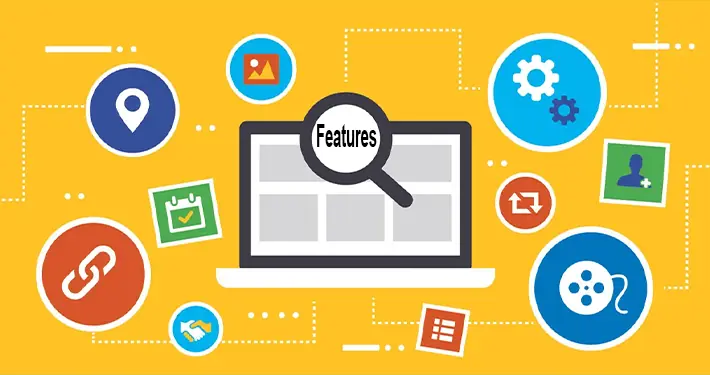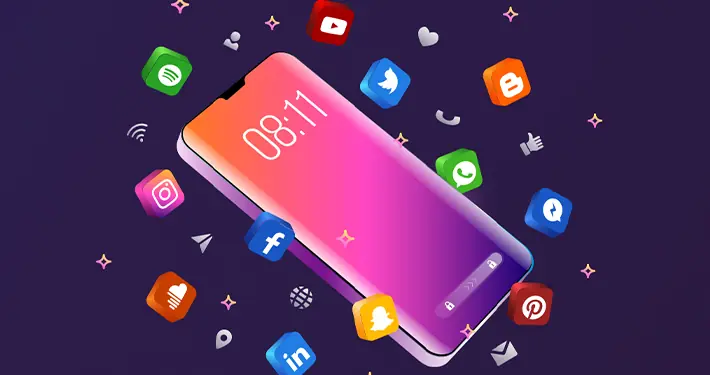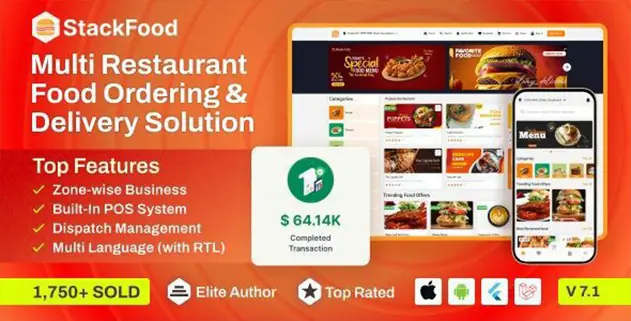StackFood Multi Restaurant 7.5 – Food Delivery App
StackFood is a complete Multi Restaurant food delivery system developed using Laravel and Flutter Framework. Using StackFood GPL License you can reinvent the way of food ordering and delivery system with its superb admin panel.
StackFood is a Multi restaurant food delivery system developed using Laravel and Flutter frameworks. Using StackFood, you can reinvent the way of food ordering and delivery system with its superb admin panel. With StackFood’s readymade and highly responsive mobile apps, you’ll get a seamless user experience for sure.

StackFood Multi Restaurant 7.5 – Food Delivery App Features
- Draw accurate coverage area on the map
- Dispatch Management
- Complete Featured User App
- Food Management
- Delivery Men Apps
- Manual assign delivery man
- Business Setting
- Multiple Payment Gateways
- Advanced Order Management
- Reporting and Statistics
- Marketing Section
- Employee Section
- SMS OTP integrated
- Multiple Restaurants
- Accounts section
What is a Mobile App
A mobile app, or mobile application, is a specialized type of software created for mobile devices, such as smartphones and tablet computers. In contrast to conventional desktop or laptop applications, mobile apps are tailored to leverage the unprecedented reach, portability, touchscreen interfaces, and diverse functionalities of mobile platforms.
Mobile apps fall into three main categories: hybrid, native, and web apps. A native app is a software application developed specifically for one mobile device operating system (OS), while a native and web application can each run on more than one OS.
The Apple App Store was pivotal in popularizing mobile applications, offering a vast array for iPhone, iPad, and iPod Touch users. Now, Google Play Store has overtaken the App Store in terms of the number of available apps. These app stores are home to the world’s iOS and Android apps.

Examples of mobile apps include gaming apps that entertain, productivity apps that make tracking and accomplishing work easier, ecommerce applications, and health-tracking apps to maintain people’s mental and physical well-being.
Users are not the only ones who benefit from applications. More businesses and organizations are building mobile apps to generate more income or scale their operations. These entities develop apps independently, scout for outsourced talent, hire freelancers, or collaborate with app agencies to succeed in their goals.
One key industry that leverages mobile apps for growth is e-commerce. There are many examples of ecommerce companies that have gone mobile. One relevant instance is when MyDeal collaborated with Appetiser Apps to maintain industry competitiveness in the face of user migration from desktops to smartphones.

